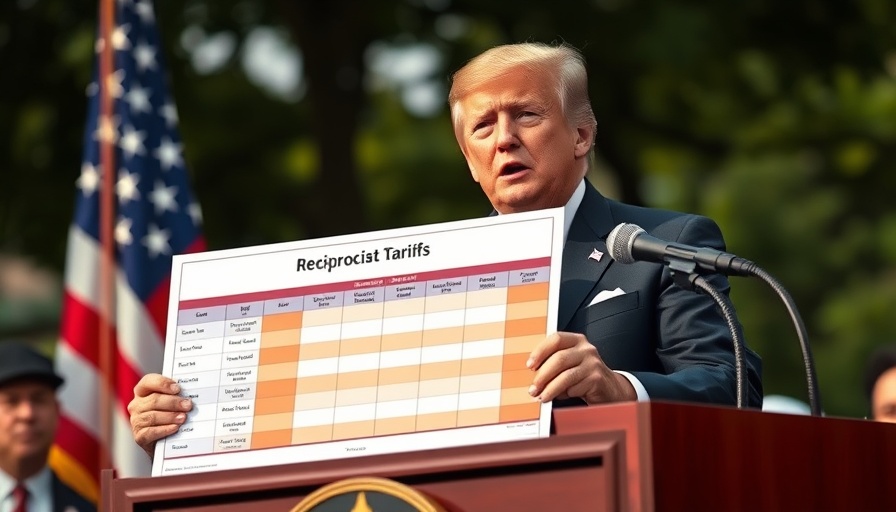
Trump’s Tariff Strategy: A Temporary Reprieve for Global Trade
In a surprising turn of events, President Donald Trump announced a temporary reduction of import tariffs to 10% for most of the U.S.'s trading partners. This decision, effective for the next 90 days, aims to facilitate trade negotiations and provide some breathing room for foreign nations impacted by recent tariff hikes. This pause comes shortly after the U.S. imposed new reciprocal tariffs that affected products from nearly 90 countries.
Impact on Taxpayers: Understanding the Financial Ramifications
The announcement has significant implications for taxpayers, especially those who may rely on imported goods. While lower tariffs could potentially lead to decreased prices for some products, the 125% tariff imposed on Chinese imports serves as a stark warning of ongoing trade tensions. As China retaliates with its own heightened tariffs—now at 84%—the overall supply chain costs could rise, ultimately affecting American consumers.
The Ripple Effect on the Stock Market
Following Trump’s announcement, stock markets experienced a robust rally, with the S&P 500 index gaining up to 7%. This rebound reflects investor optimism but underscores the volatility that tariffs can introduce into financial markets. Taxpayers should pay close attention as these shifts in the market can also affect broader economic stability and their future tax liabilities.
Negotiation Tactics and Their Importance
Trump emphasized that more than 75 countries reached out to U.S. officials seeking negotiations after the unveiling of the new tariffs. This move suggests a dynamic shift in international trade relations where negotiations could lead to more favorable terms and lower taxes on imports. For savvy taxpayers, understanding these negotiations is critical as they may lead to strategic tax deductions in follow-up agreements and trade policies.
With the significant changes in tariffs, American taxpayers, especially those linked to the import and export sectors, might consider reassessing their tax strategies and planning. Utilization of lower tariffs could provide avenues for deductions that may have previously been overlooked. To explore these potential savings further, taxpayers are encouraged to consult their tax professionals about savvy strategic tax deductions they can leverage amidst shifting trade policies.
Final Thoughts: The Path Ahead for Taxpayers
As the U.S. navigates this complex landscape of tariffs and international negotiations, taxpayers need to remain informed about the implications for their finances. Monitoring the intertwining effects of tariffs on the economy can provide valuable insight into future tax planning. By staying proactive and leveraging potential deductions available to them, taxpayers can position themselves for better fiscal outcomes in a changing economic environment.
 Add Row
Add Row  Add
Add 




Write A Comment